What It Actually Looks Like When Trans People Follow Bathroom Bans
Uncloseted Media documents two trans people using the bathroom legally in states with bans.
In Trump’s new America, bathrooms have become politicized battlegrounds.
What may have seemed like an issue resolved in 2017 following the repeal of North Carolina’s infamous HB 2, bathroom bans targeting the trans community have once again made national headlines alongside a spate of new bills.
Nineteen states already have active laws that restrict transgender people from using restrooms that match their gender identity. Many of these bills are more extreme than those in previous years, with Florida and Utah—two states that have banned trans folks from using all government building restrooms that match their gender identity—threatening criminal penalties against violators. Florida’s law classifies the offense of using the bathroom and not leaving when asked as a first-degree misdemeanor, punishable by up to a year in prison and a $1,000 fine.
To understand what these bans look like in practice, Uncloseted Media documented Briden Schueren, a trans man, legally using the women’s bathroom at the University of Cincinnati and Ashley Brundage, a trans woman, legally using the men’s bathroom at Tampa International Airport.
Schueren, a 37-year-old art studio owner from Columbus, Ohio, walks across the University of Cincinnati’s campus, uncertain of where he can and can’t use the men’s restroom in his home state.
“What are the bills, what is getting passed in the House,” he told Uncloseted Media. “[Keeping up] is just exhausting.”
Ohio is one of seven states that ban transgender people from using bathrooms and facilities consistent with their gender identity in K-12 schools and specific government-owned buildings, including the University of Cincinnati.
The public research university made headlines and sparked outrage from LGBTQ advocates when it implemented restroom signs labeled "biological men" and "biological women" to enforce Ohio’s Senate Bill 104. They took the signs down after just one month of protests, with college administrators apologizing to students in an email, saying that the “biological” bathroom signs will be replaced and that they made an "error.”
But even with the removal of the signs, it’s still illegal for Schueren to use the men’s bathroom anywhere on the school’s campus, meaning if he wants to follow the law, he has to use the women’s bathroom or a gender neutral option that is “out of the way,” according to students.
Schueren says he felt uncomfortable entering a space where he knows he doesn’t belong. “I now have to be in this bathroom [even though] that’s not how I identify anymore socially and mentally,” he says. “I don't belong there. As a masculine person with a very obvious beard, I feel like my bathroom is the men's restroom.”
Brundage, a 44-year-old transgender woman from Tampa, Florida, has not used men's restrooms for 16 years since she came out.
Florida's Facility Requirements Based on Sex Act—that passed into law in 2023—mandates that individuals use restrooms and changing facilities that correspond to their sex assigned at birth in certain public and state-owned buildings, like libraries, schools, post offices and airports.
“It felt weird,” says Brundage, describing the moments before being forced by law to use the men’s restroom at the airport. “It was a little awkward, right? We wanted to make sure that we weren't making anybody feel uncomfortable."
Schueren says that being back in a bathroom that doesn’t align with his identity was painful.
Research from the International Journal of Transgender Health shows that 49% of transgender youth reported sometimes avoiding public bathrooms and 22% always avoided them. Youth who avoided bathrooms were nearly twice as likely to attempt suicide in the past year compared to those who never avoided public bathrooms. And a 2020 survey found that 85% of transgender youth who faced bathroom restrictions reported a persistent depressive mood.
“We already know that the suicide rates for trans individuals are highest amongst everybody, so it just could cause more,” says Schueren.
Bathroom bans are not only emotionally taxing; they can be dangerous.
A 2025 report by the Williams Institute found that transgender people face increased risks when they are required to use bathrooms according to their sex assigned at birth. Transgender men were more likely to experience harassment when using the women’s restroom.
Schueren has faced harassment in both the men’s and women’s restrooms. In the early stages of his transition, he remembers entering a bathroom on his college campus and being followed by a man who knew he was trans. “He was making aggressive movements,” says Schueren.
The man stood outside the stall, punching his hand against the wall. “He was just so angry. ... [H]e was much bigger than I was. He was making threats, saying I would ‘be injured.’”
For nearly 45 minutes, Schueren sat on the toilet and watched through the crack in the stall door as the man paced back and forth before finally departing. “I was just sitting in the bathroom shaking hysterically, waiting patiently for him to leave.”
Brundage, who ran for office for the Florida House of Representatives in 2024, sees a massive irony when far-right lawmakers claim these bans will keep women and girls safer.
“I also want to make sure that my kids are safe in bathrooms,” Brundage says. “The people who actually do harm in spaces … are typically cisgender men. And it’s like, ‘Who is the actual villain?’ We should be doing something to address the issue, not scapegoating transgender people.”
Congresswoman Nancy Mace, who has been vocal and accusatory on this issue, has used transgender slurs in press conferences and has framed her stance as a defense of "biological reality" against what she calls "radical gender-bending experimentation.”
In November 2024, she introduced a resolution to ban transgender women from using female facilities on federal property. When asked if the resolution was targeted toward Sarah McBride, the first openly transgender member of Congress, Mace said, “Absolutely.”
Even though McBride said she would follow House rules by using a private bathroom on Capitol Hill, Republican Congresswoman Lauren Boebert mistakenly confronted a cisgender woman in a Capitol bathroom, believing she was Rep. McBride.
Boebert reportedly said, “You shouldn’t be here,” before realizing her error and later apologizing.
In addition, earlier this month, two cisgender women were ordered to leave a Boston hotel after a security officer demanded one of them show identification to “prove” her sex while using the women’s restroom.
"We have to do a better job in the world linking bathroom hypocrisy to [discrimination]," Brundage says, drawing a line from today’s debates to Jim Crow laws from the 1960s, where Black Americans were banned from white-only bathrooms—part of a racist system that falsely promised “separate but equal.”
Far-right media has created a narrative that allowing trans folks to use the bathroom that matches their gender identity is dangerous and unsafe, especially for young girls.
In 2021, Fox News aired 88 segments over a three-week period about a sexual assault at a Virginia high school, repeatedly suggesting that the incident was related to trans-inclusive bathroom policies. Fox host Will Cain claimed that the school’s “transgender policies led to [a father’s] teenage daughter being allegedly raped in the school bathroom by a man in a skirt." These claims were false, as the school's policy was implemented months after the assault.
In addition, transgender men are frequently indistinguishable from cisgender men. This means a male predator wouldn’t need to disguise himself to enter a women’s restroom in a state with a bathroom ban; he could simply claim to be trans.
“A law's not gonna stop a gross, deranged perpetrator,” says Schueren. “They're already breaking the law by being a person that wants to be a predator. So it's not trans people that are doing this, it's people that just break the law in general, and those tend to be cis [men].”
There is no empirical evidence that allowing trans individuals to use a bathroom of their choosing increases the risk of sexual assault.
Brundage says that beyond the misinformed narratives surrounding anti-trans legislation lies something far more practical and frustrating: a massive amount of wasted taxpayer dollars.
"We're talking about this wasteful spending issue of trans people," she says. "Meanwhile, do I have a realistic way to make a living? Am I paying too much for insurance? Do the roads have potholes where I live? All of these things that could actually really affect you on a day-to-day basis aren't being discussed and aren't being solved."
Brundage notes the more than $215 million the Trump campaign and the GOP spent on anti-trans ads during the last election cycle.
She says the constant political targeting of trans people has psychological and social consequences.
"Could you imagine if someone was going to be the president … and every time they got on the microphone, they talked about all the people named Steve in the world, how awful they are, how crappy they are?" she says. "If your name is Steve, you're going to feel really crappy eventually. You're going to feel like the whole weight of the largest economy in the world is against you."
While using a bathroom isn’t something cis people have to think about, Schueren says it’s often on his mind, especially when crossing state lines. “I recently went on a road trip with a trans person and we both are at different stages of our transition,” he says.
Beyond the emotional toll and stress of planning where to use the bathroom, holding in urine can increase the risk of urinary tract infections, cause bladder discomfort, and—in the long-run—contribute to bladder dysfunction from overstretching.
Schueren and Brundage say being forced to use the bathroom that doesn't match their gender identity feels awkward, confusing and wrong.
Brundage agrees and underscores how much time and energy these debates are taking away from conversations Americans really care about.
“While we're talking about bathrooms, we're not talking about lowering insurance rates for houses or for cars, because we are all focused on the big bad transgender people,” she says.
If objective, nonpartisan, rigorous, LGBTQ-focused journalism is important to you, please consider making a tax-deductible donation through our fiscal sponsor, Resource Impact, by clicking this button:











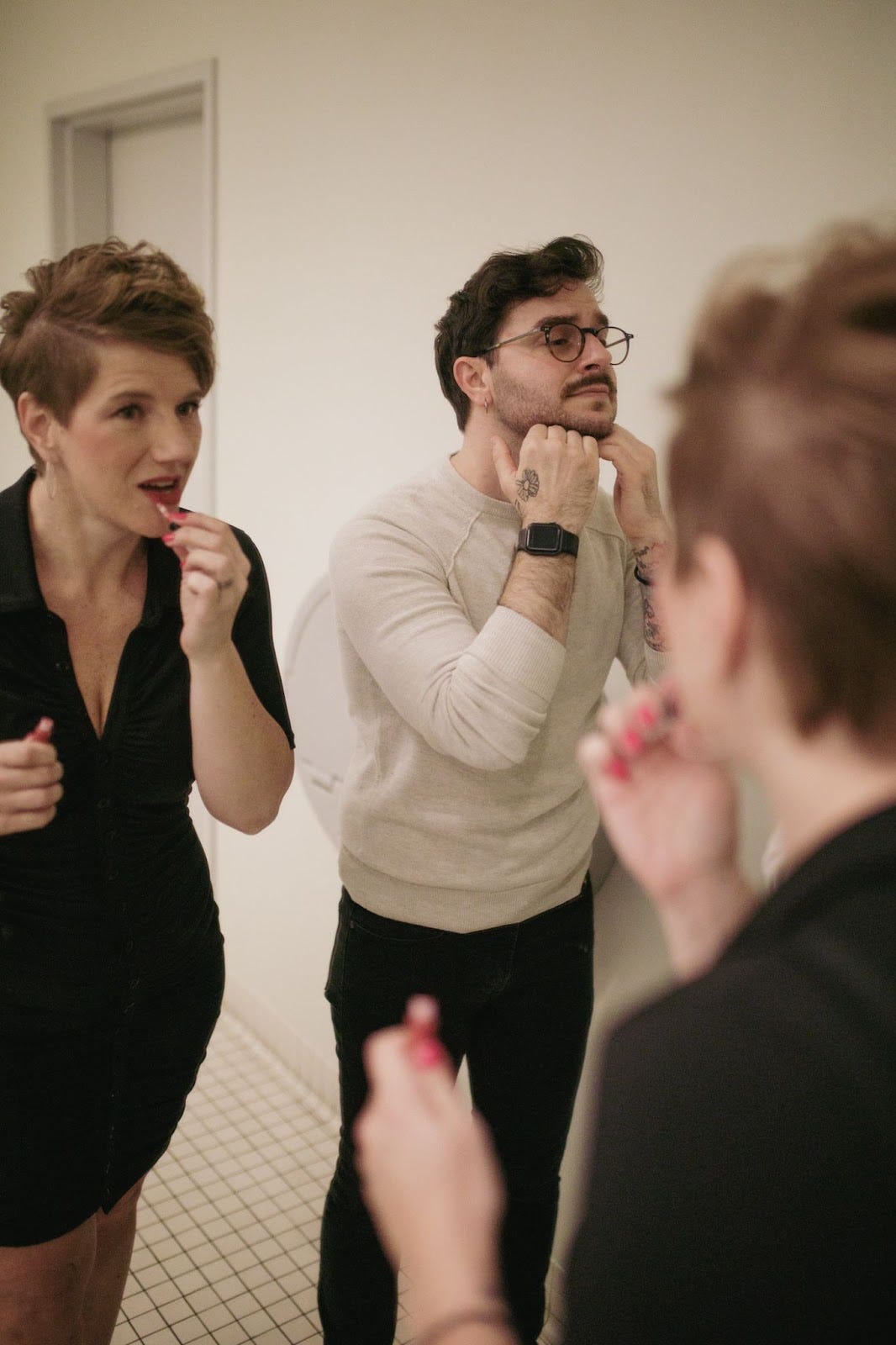

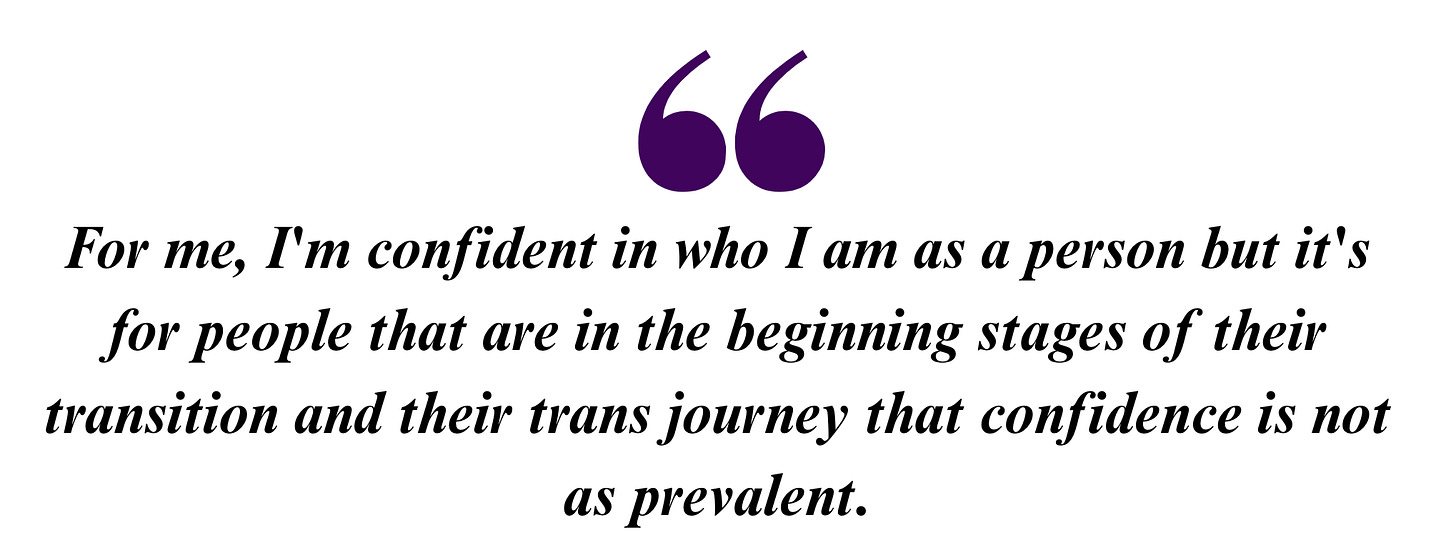
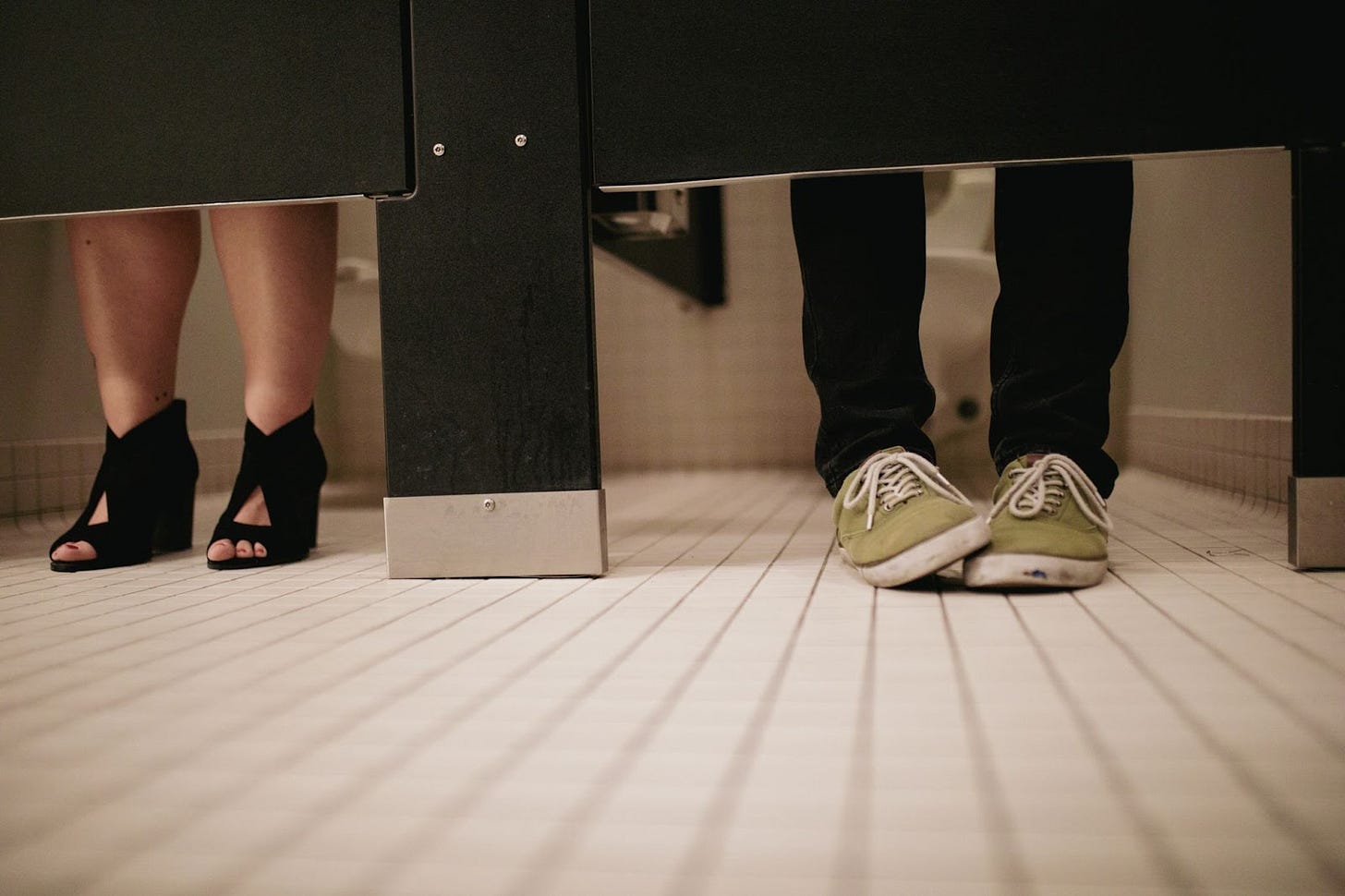
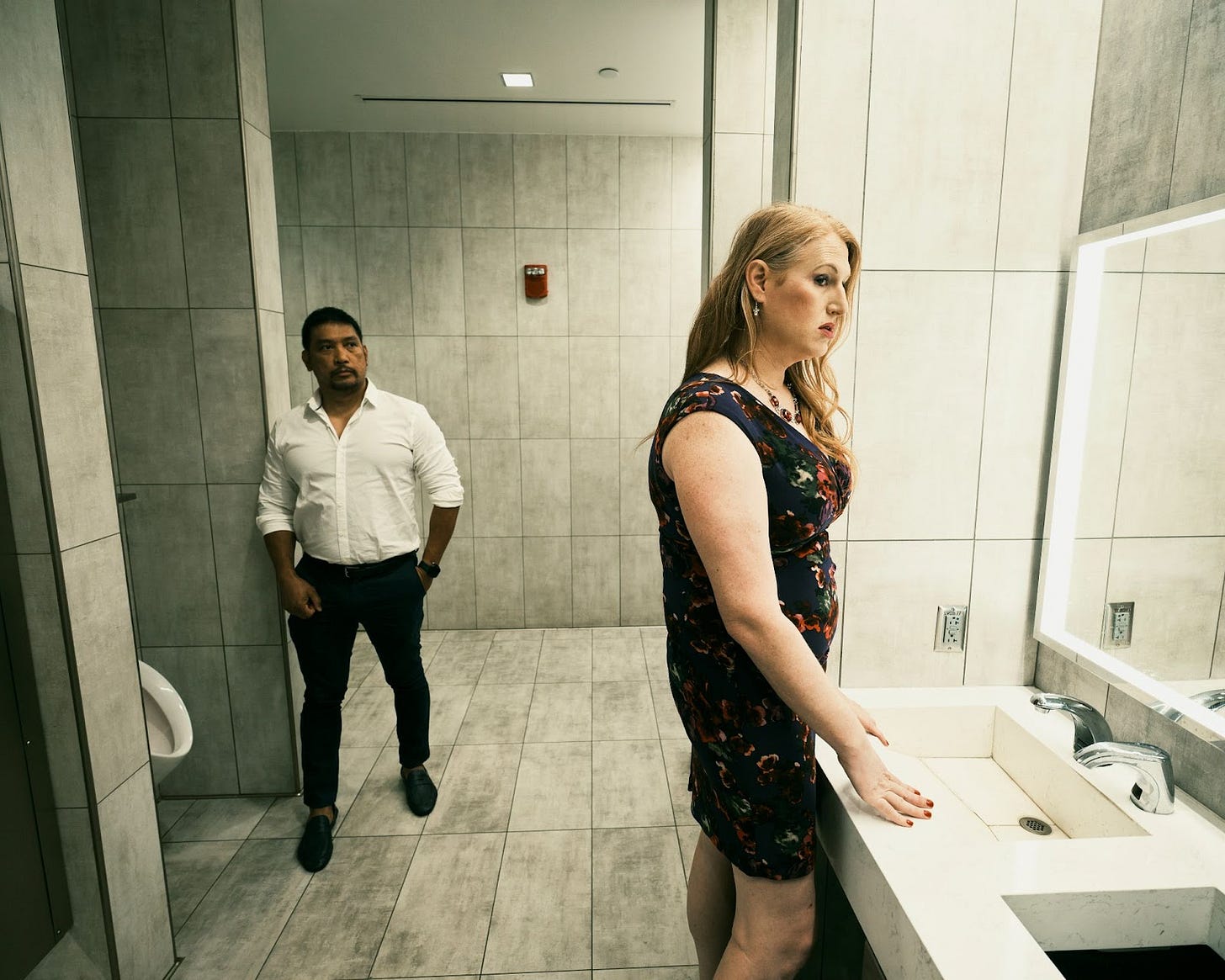






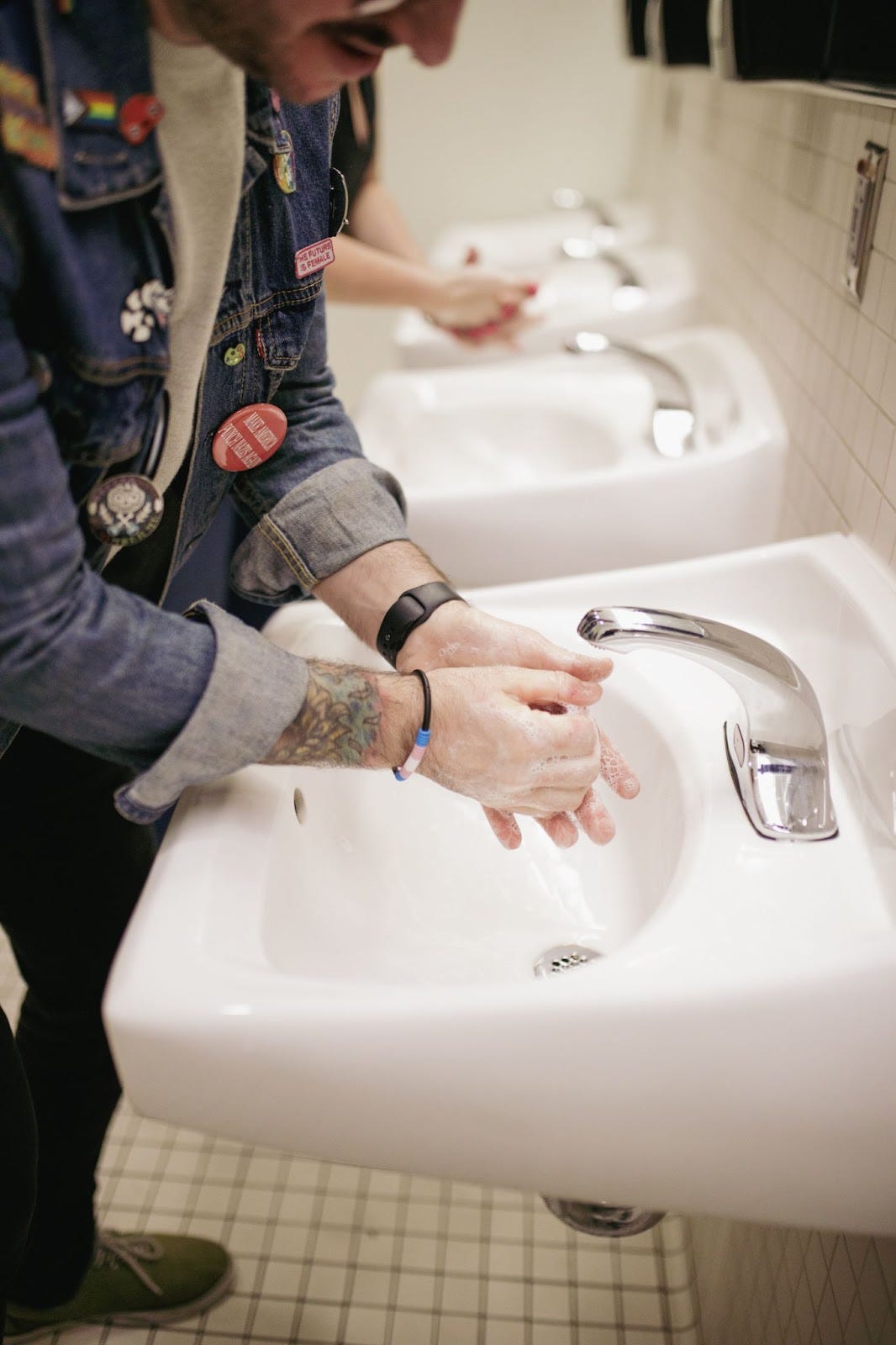
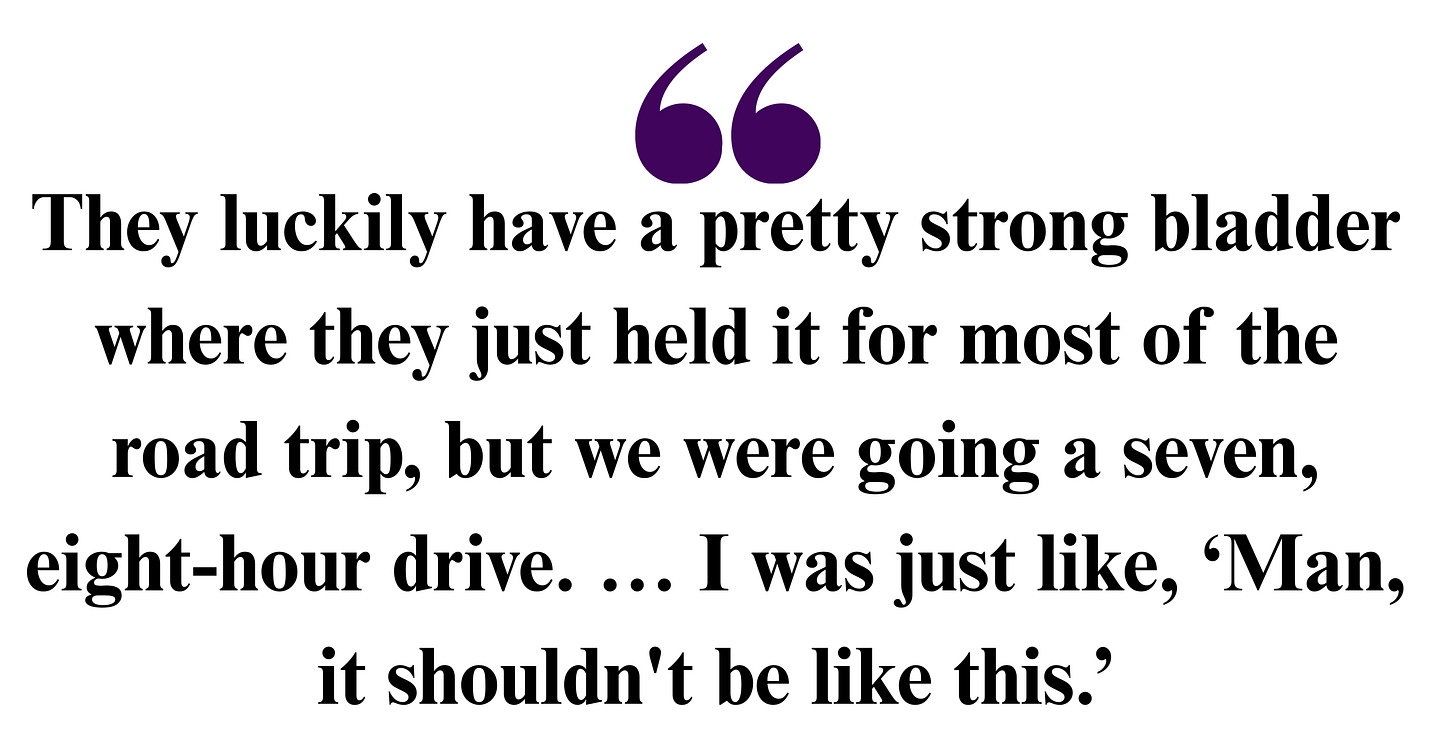
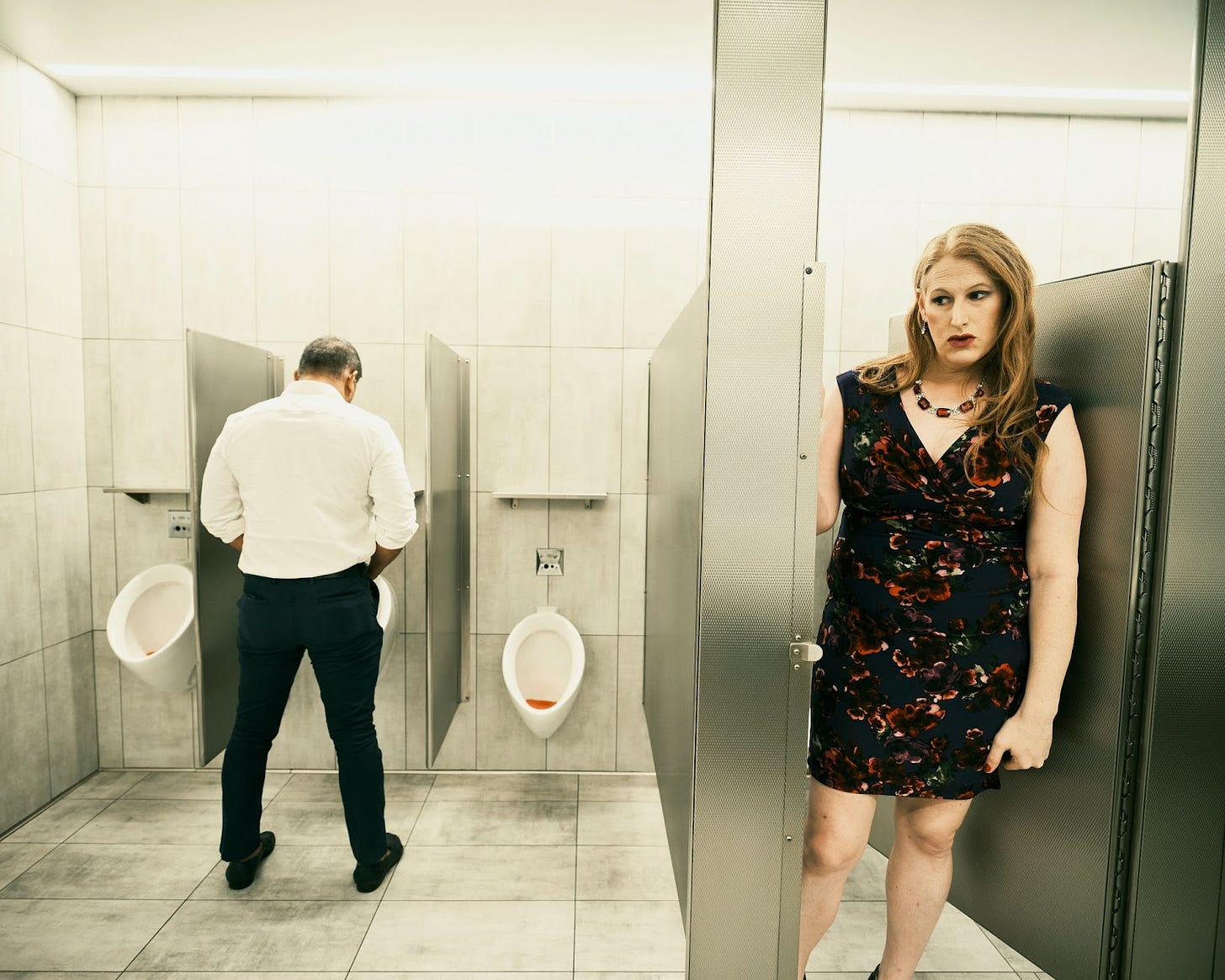



Kept waiting to read what the cisgender bathroom users said about the transusers. Were they okay or uncomfortable?